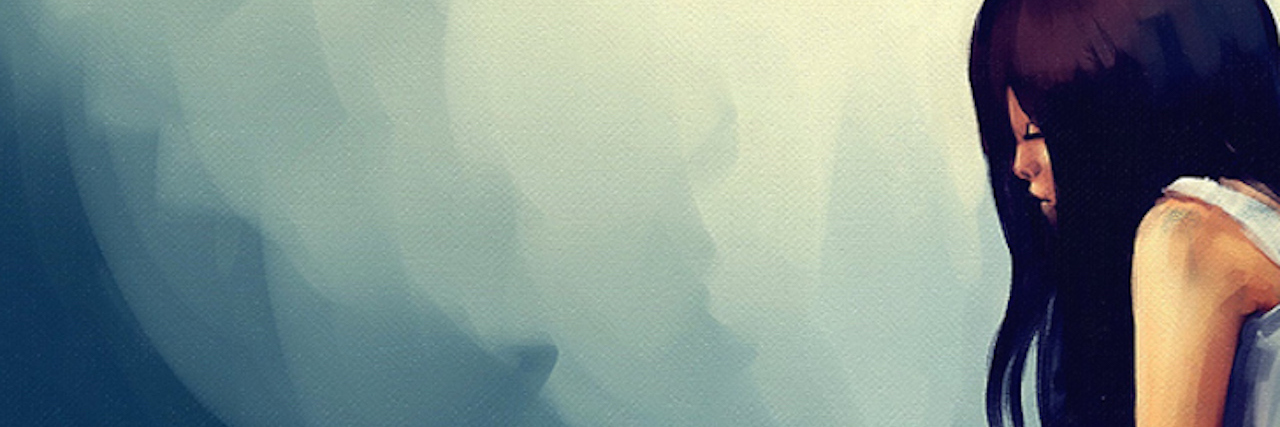Guilt is a miserable thing. It seems to have no positive redeeming qualities about it. It just makes us feel bad. When my on-call doctor got paged and had to step out of the room, he apologized profusely. I thought it was strange — because there was nothing to be sorry for. Doctors are on-call all the time. That 15 second phone call didn’t inconvenience me — and he was just doing his job. Why was he sorry about that? Then I realized just how bad I am about doing the exact same thing. Constantly apologizing for things I have no business being sorry about. It’s guilt. And it’s a lifelong habit I have yet to break.
Sure, there are plenty of things it is perfectly natural to feel guilty about, but most of the time, it is a result of expectations and pressure we put on ourselves, and feel we didn’t meet our goals in the way we wanted to. I believe guilt falls into a group of negative emotions, like shame, that tend to eat away at us from the inside, rather than being outwardly expressed. Anger or frustration is usually easier to see, and express, than guilt or shame. Unfortunately, guilt can become a sort of defense mechanism designed to keep us from getting hurt, by hurting ourselves before others get the chance.
How many times a day do we apologize for things we shouldn’t be sorry for? It seems to be a hallmark trait of mental illness. Anxiety makes me apologize because I feel guilty that everything I do is wrong somehow. Depression makes me apologize because I feel guilty for even taking up space and breathing. I apologize for having ADHD and spending 10 minutes looking for my debit card, which is in my hand. I apologize when I have to sit down because my heart is racing because medication one combined with medication two has made medication three stop working well to control my tachycardia. I apologize for everything. I just apologized to my computer because I keep misspelling things and the auto correct keeps fixing it. I actually felt guilty that my computer is having to “work hard” because I can’t spell worth a darn.
Guilt is comforting. It means I am ahead of the game. It means I feel bad about something. And if I feel bad about it before someone can “make me feel bad” about it — then at least I’m hurting myself before they can hurt me. (And if that statement doesn’t sound like it came straight out of the mouth of someone who grew up in an abusive environment, I don’t know what does. But it’s true.) Guilt feels safe.
Guilt is not an emotion limited to those who grew up in less than ideal circumstances. But if you were taught growing up that you have to earn everything — every breath you take, and that anything less than 100 percent is failure, then it is very easy for guilt to become a security blanket of sorts. The only feeling that can protect you from harm. Anger definitely won’t do you any good. Fear? Fear doesn’t seem to stop anything bad from happening. Forget feeling excited, happy, or (heaven forbid) proud. Those will get you hurt. But feeling guilty? Well, it helps. If for no other reason than feeling like something gives you an illusion of control.
But what happens if you never learn how to feel anything besides guilt? It’s not a security blanket anymore. It’s a soul-crushing weight, that threatens to destroy you with every breath you take. It isolates you, it chases you down in your dreams, it suffocates you. Guilt hurts you. We aren’t mean to feel constant, unrelenting guilt. Our brains can’t process that, so we end up feeling guilty for feeling guilty. It’s an inescapable prison.
But the best thing we can do is step back and see it for what it is — a defense mechanism gone awry. It doesn’t really make us feel safe — it makes us feel trapped. It’s OK not to apologize for your very existence, it really is. I know it’s scary to try to let go of that constant companion — especially if that sense of guilt was the only thing you could rely on growing up. But it really is OK to let go. It won’t leave you as vulnerable and defenseless as it seems like it will. It’s safe to let go of that guilt, and not apologize for taking up a spot on this earth. It’s OK. Because when you learn to let go of that guilt — even just a tiny bit — you begin to breathe a little easier.
If you or a loved one is affected by domestic violence or emotional abuse and need help, call The National Domestic Violence Hotline at 1-800-799-7233.
We want to hear your story. Become a Mighty contributor here.
Thinkstock photo via Archv.

